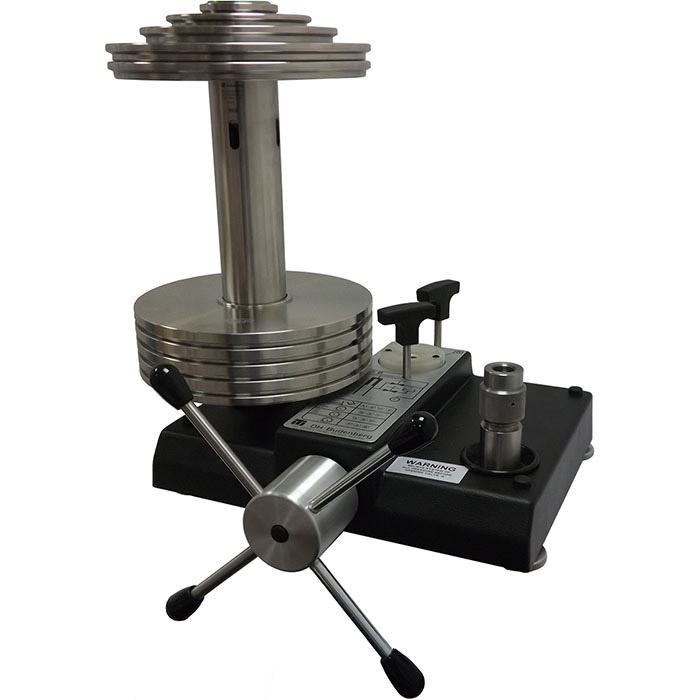CPB3800HP piston pressure gauge

Apps
The instrument is extremely accurate, can be used as the first-class standard in the laboratory within the hydraulic range of 260MPa
can be used as a stress standard for stress testing, commissioning and calibration in a factory or pressure laboratory
The instrument is complete and independent of external equipment, so it is also suitable for field calibration
Features
The total uncertainty is 0.01% of the reading
Up to 260MPa double piston system can be freely switched
Standard factory calibration certificate can be traced to national standards, and an additional UAKS certificate can be selected
The weight component is stainless steel, which can be adjusted to the gravity acceleration where the product is used.
Description
Officially recognized benchmark accuracy
Piston pressure gauge is the most accurate instrument available on the market to calibrate electronic pressure products and mechanical pressure products. The instrument measures the pressure directly by defining the formula (P=F/A). The instrument components are made of high-quality materials, so that the instrument not only has very small measurement uncertainty, but also has long-term stability with an effective period of more than five years. Because of this, piston gauges have been used and proven for many years in various factories, industrial sectors, national institutions, research institutes, and calibration laboratories.
Independent operation
CPB3800HP integrates a pressure generator and measures pressure from the fundamental principle, so it is an ideal product for on-site maintenance and various field services.
Basic Principles
Pressure is defined as the force per unit area, so the core component of CPB3800HP is a very high precision piston-cylinder assembly, which produces precise pressure by loading a certain mass of weight on the assembly. .
There is a certain ratio between the loading of the weight and the set pressure. When using the instrument, the instrument will approach the set pressure by optimizing the loading method. When the weight is produced, the weight is based on the standard gravity constant (9.80665/s2). It can also be adjusted according to the application requirements, based on the actual gravity constant of the place of use, or according to the products calibrated by UKAS or DKD/DAKKS.

